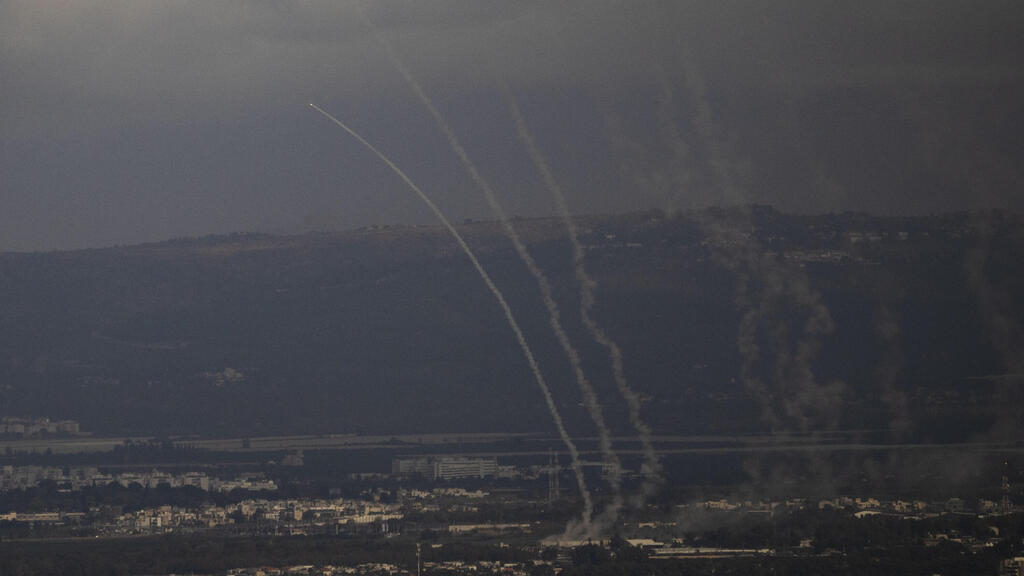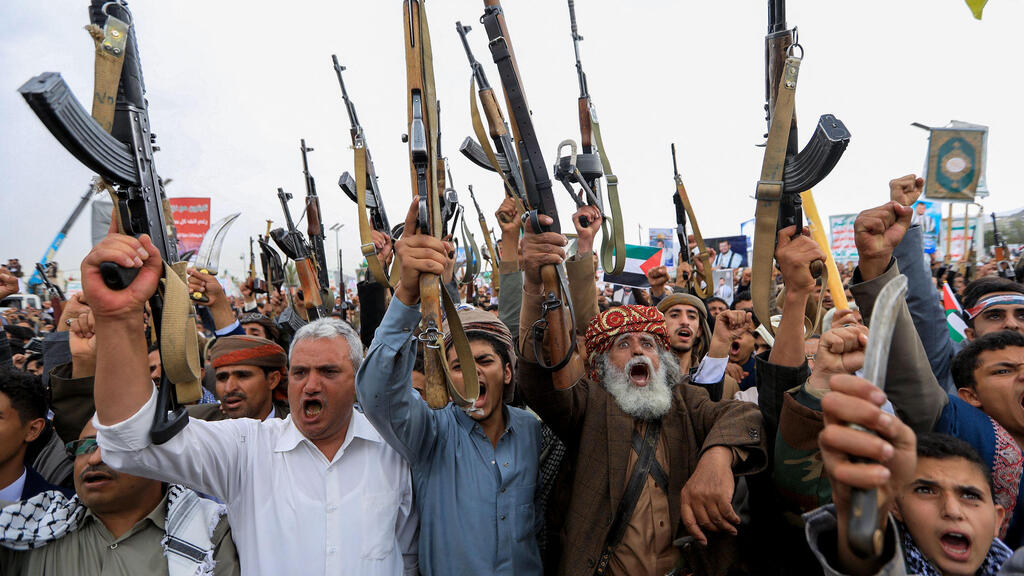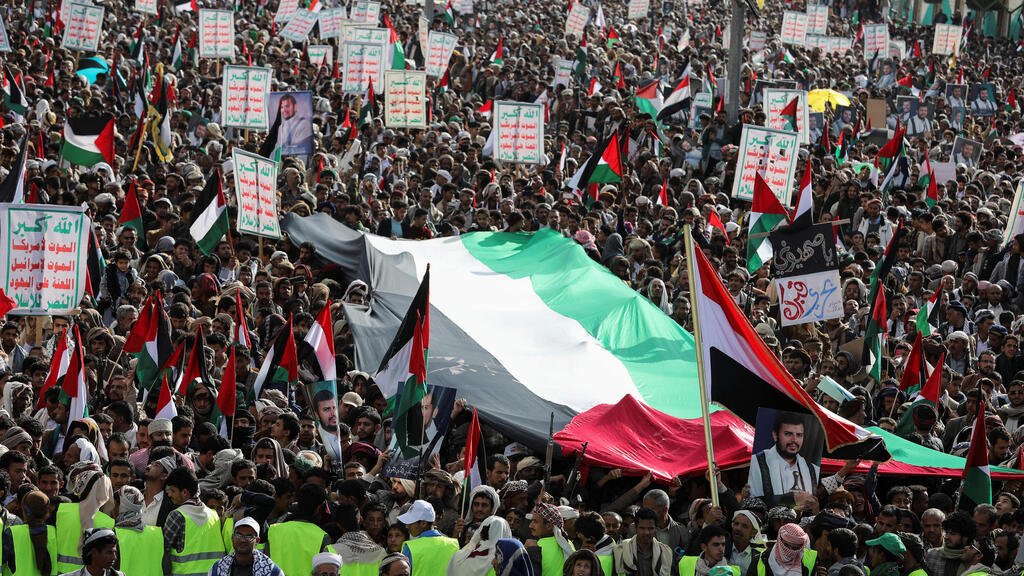The alarms that blared Sunday morning across central Israel served as a stark reminder that, despite the cease-fire in Lebanon and a significant drop in rocket alerts, the war is far from over. Multiple fronts remain active, each presenting its own challenges.
A ballistic missile launched from Yemen on Sunday during what had been a rare quiet day underscored a troubling reality – Israel lacks a comprehensive strategy to address these ongoing threats. For nearly 14 months, attempts to create such a strategy have stalled. Hopes now rest on the end of the Gaza war to bring stability to other fronts, though this remains uncertain.
An interception of a drone near Eilat
(Video: IDF)
Criticism within Israel has also grown regarding the perceived inaction of the U.S. and the international coalition. Despite severe disruptions to shipping routes and Egypt’s economy, American efforts have been limited to intercepting drones and targeting weapons depots, leaving many questioning the West’s ability to confront these escalating threats.
The missile attack from Yemen was a clear message from Iran’s regional proxies: As long as the fighting in Gaza continues, so will their attacks on Israel. Iran appears to have no interest in fully de-escalating, and the ongoing strikes from Yemen and Iraq may compel Israel to take more decisive action. This could include pressuring the U.S., where an administration change looms next month, to intensify its military efforts in the region.
In a recorded statement last week before the Israeli Cabinet approved the Lebanon cease-fire, Prime Minister Benjamin Netanyahu addressed the broader regional challenges. “In Yemen, we struck the Houthis’ Hodeidah port with force – something the international coalition had not done before. In Iraq, we have successfully thwarted numerous drone attacks, but challenges remain,” he said.
Netanyahu also targeted the “head of the octopus” – Iran. “We’ve destroyed significant parts of their air defense systems, missile production capabilities, and elements of their nuclear program. Preventing Iran from obtaining nuclear weapons is my top priority. It’s crucial for Israel’s security and future,” he declared.
Over the weekend, the IDF reported intercepting two drones approaching from the east before they entered Israeli airspace. However, the origins of the launches remain unconfirmed.
Despite the cease-fire in Lebanon, the region is far from calm. Syrian rebels launched a surprise attack against the Assad regime, and Iranian-backed militias continue to insist their operations will persist. These groups, initially aligning their actions as "support for Gaza," have made it clear they do not plan to cease fire soon.
Abdul-Malik al-Houthi, leader of Yemen’s Houthis, gave his first speech since the cease-fire last Thursday. Calling Lebanon’s “victory” over Israeli aggression a historic triumph, he emphasized: “We will not abandon Gaza. We will continue our operations on all fronts.” His comments were followed by nationwide protests organized by Houthi supporters.
Pro-Iran militias in Iraq also distanced themselves from the Lebanon cease-fire, with groups like Kata’ib Hezbollah declaring that the cessation of fighting by Hezbollah would not impact their commitment to the Palestinian cause. They even vowed to escalate their attacks if Israel does not halt its actions in Gaza. Reports from Iraqi and international media suggest tensions between Iraq’s Prime Minister Mohammed Shia’ al-Sudani and the militias are growing, partly due to the risk of Israeli retaliation.
Notably, while attacks from Yemen and intercepted drones persist, claims of responsibility from the Houthis and other militias have been less frequent, a marked shift from the daily announcements seen earlier in the conflict. Analysts suggest this is a strategic move to avoid provoking a larger Israeli response now that the Lebanese front has quieted.
Get the Ynetnews app on your smartphone: Google Play: https://bit.ly/4eJ37pE | Apple App Store: https://bit.ly/3ZL7iNv
According to Danny Citrinowicz, a senior researcher at Israel’s Institute for National Security Studies and a former head of the Iran branch in military intelligence, several factors are driving the militias’ reduced visibility. These include fears of an Israeli focus on their activities post-Lebanon, escalating internal conflicts in Iraq, and U.S. pressure on Baghdad. However, Citrinowicz warns this does not mean the militias will stop. "They aim to maintain a low profile, enough to show loyalty to the Palestinian cause without risking large-scale Israeli retaliation," he explained.
The Houthis officially claimed responsibility for Sunday’s missile attack, boasting that they had targeted a “vital site near Jaffa” with their hypersonic Palestine-2 ballistic missile. For Israel, the growing threats from these fronts underscore the urgent need for a unified strategy before the situation spirals further out of control.







